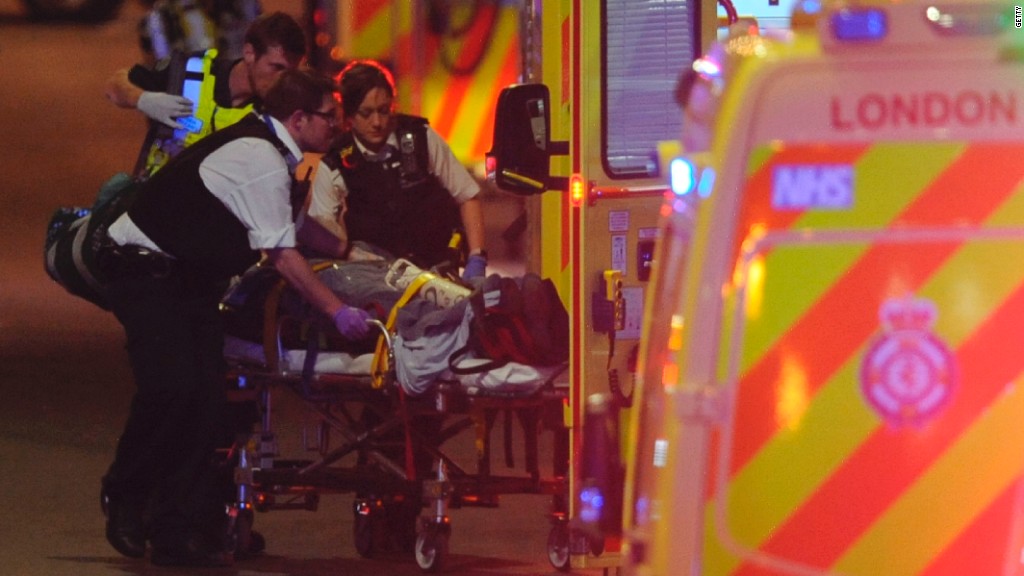
Uber has been accused of taking too long to turn off its "surge pricing" feature after a deadly terror attack in the heart of London.
App users complained that they were being charged inflated prices on Saturday night after a van plowed into pedestrians on London Bridge and three knife-wielding men attacked revelers in a nearby nightlife district.
The backlash was intense on social media, where commentators said that Uber should have immediately disabled surge pricing for people trying to make their way home across the capital.
"Hey @Uber -- you're really going to surge price x2.1 during a terrorist attack in #London???" said one Twitter user. "Lower than low."
Another said: "Big fan of @Uber but bitterly disappointed in profiting from a terrorist attack."
Tom Elvidge, the general manager of Uber in London, said the company would not charge users for rides taken from areas near the attack. He also defended the company's response.
"As soon as we heard about the incident we immediately suspended dynamic pricing all around the area of the attacks -- and shortly afterward across the whole of central London -- just as we did following the attacks in Manchester and Westminster," he said.
Related: 8 minutes of terror and mayhem
Uber fares are calculated using an algorithm that reacts to demand. The controversial pricing model, which is designed to lure drivers to areas where demand is high, is typically suspended during disasters and emergencies.
But the company has been criticized for not acting quickly enough.
On Saturday, the first calls to emergency services in London were made at 10:08 p.m. Uber said it had disabled surge pricing in the immediate area of the attack by 10:50 p.m. and extended the suspension to include all of central London by 11:40 p.m.
Forty-eight people were injured in the attack and at least seven were killed. Police officers pursued and shot dead three attackers within eight minutes of the first emergency call, London police said.

